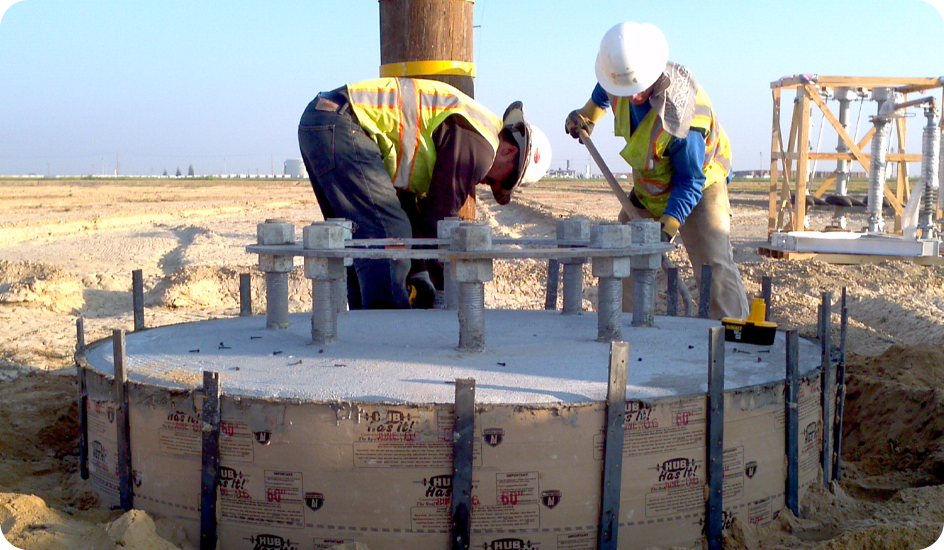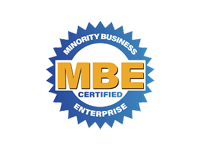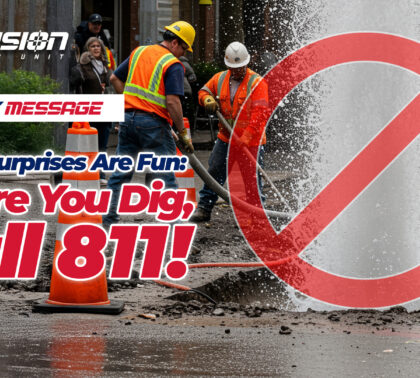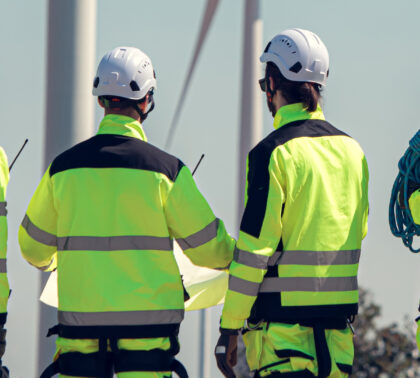Quality Assurance & Quality Control
Precision Services Unit commitment is to provide excellence with our Quality Assurance/Quality Control Program for every project that we have the privilege of inspecting. PSU’s unique quality is derived from multiple years of experience within the fields of geology, geotechnical engineering, and special inspection services and the trusted relationships that we have developed with our clients. We pride ourselves on providing detailed inspections/observations to ensure each project we attain will be professionally reviewed, inspected, documented, and constructed per the related plans/reports/specifications.

Precision’s advantage is based on a combined 79 years of experience working in inspection and geotechnical services, including geological/geotechnical investigations, landslide reconstruction, overseeing large earthwork for construction projects; underground, pavement, retaining walls, and pads; density testing, developing stabilization and/or groundwater drainage designs; inspecting reinforcing steel including cages, foundations, and CMU retaining walls; concrete inspections and testing, structural pier foundations and direct bury excavations, micropiles, building structure foundations; and ICC Structural Special Inspections for residential, commercial, and industrial projects.
PSU’s objective is to assist and collaborate with the client and contractor(s) in all aspects of construction inspections and to provide guidance in a proactive manner to enhance the project’s quality production for a successful outcome.
Quality Control Services
All geologic, geotechnical reports, project plans, specifications, and applicable codes will be researched and meticulously reviewed prior to the project start up. A comprehensive checklist will be developed for each project derived from the conclusions and requirements as detailed in the reports, plans, and specifications. Any discrepancies discovered in the project documents will be brought to our client’s attention prior to the project start-up date, this is typically addressed by implementing a Request For Information (RFI).
Daily Field Reports (DFR’s) and/or Daily Inspection Reports (DIR’s) will be issued for all site visits/inspections performed on a daily basis. A comprehensive QA/QC Report will be issued upon the completion of the project. A QA/QC Work Plan can also be provided prior to the project start-up date upon request.

- Grading Plans and Geotechnical Engineering Report(s) review.
- Verify the existing geologic subsurface conditions/materials and import material(s) are consistent with the Grading Plans and Geotechnical Engineering Report(s).
- Provide construction monitoring in accordance with the geotechnical report and grading plans, ASTM Standards and/or SDG&E Specifications.
- Field inspections of fill placement to validate soil type(s), moisture content, and compaction testing.
- Provide guidance with soil processing techniques, grading placement, and compaction equipment usability.
- Bottom of keyway and over-excavation inspections will be conducted by a Registered Geologist.
- Trench excavation inspections for compliance with OSHA classifications, requirements, and standards.
- Provide accurate field density testing, observations, and thorough documentation of the project development.
- Verify ASTM Standards, applicable codes, and/or SDG&E Specifications are adhered too.
- Provide a final QA/QC report.

- Wall Plan review.
- Verify the existing geologic subsurface conditions/materials are consistent with the Wall Plans and Geotechnical Engineering Report if available.
- Provide construction monitoring, special inspections, testing, and documentation in accordance with the project requirements, Wall Plans and specifications.
- Provide a final QA/QC report.

- Review Drilled Pier Foundation Plans (IFC) Drawings and Reinforcing Steel Cage Shop Drawings. Provide a Request For Information (RFI) to client if discrepancies are found.
- Inspection of the steel reinforcing cage at origin of construction before delivery to the project site.
- Inspect and document the Direct Bury/Drilled Pier Foundation excavation to ensure compliance with geotechnical report(s), (IFC) foundation plans and drawings, data sheet(s), SDG&E TE-0105 and other applicable technical specifications, i.e. SR76 and Exhibit A-3.
- Verify that the subsurface/geologic conditions encountered in the excavations are consistent with the geotechnical report and plan design parameters.
- Inspection of the steel reinforcing and anchor bolt cages to be in accordance with the Drilled Pier Foundation Plan(s) and Details prior to placement in the excavation.
- Inspection of the structural pier form work and set up in compliance with the IFC drawings and TE-0105 Specifications. Emphasis on verifying that the pier V-Notch orientation is in line with the survey staking and Foundation Plan (conceptual).
- Verify Concrete Batch Tickets for mix design, plant origin, batch time and amount of “hold back” water, slump and air content on each ticket/truck load delivered to the project.
- Observe and document all concrete testing performed, including slump, air content, temperature, and concrete sampling for compliance with American Concrete Institute (ACI) standards and SDG&E TE-0105 Specifications. Ensure that the correct number of cylinders are cast and properly cured in the field.

- Review Mircopile Foundation Construction Plans and Foundation Schedule.
- Inspection of materials; including permanent casing, all-threaded bar (ATB), and hardware.
- Confirm subsurface conditions (anticipated geologic units).
- Prepare detailed log of each micropile noting the geologic character of drill cuttings, depth to competent material, depth of caving/groundwater or other notable conditions, and drill advancement time. Confirm whether any zones of communication occur between micropiles.
- Confirm whether micropiles are installed as Type A or Type B.
- Verify V-Notch orientation per IFC drawings.
- Document and confirm casing and bar installation.
- Verify micropile ring array diameter and that ring is within the center pin or center of foundation.
- Document grouting operations and testing.
- Verify proof test and if any creep or axial displacement if exhibited.
Material Inspection Certifications
Our rigorous Quality Control services involve detailed inspections and continuous monitoring to maintain the integrity of each project. We use advanced tools and methodologies to assess every aspect of the construction process, ensuring that any deviation from the plan is quickly identified and corrected. With Precision Services Unit, you can trust that your project will not only meet but exceed industry standards, delivering results that last. Whether it’s for underground utilities or complex infrastructure, our commitment to quality ensures successful, reliable outcomes every time.

Includes ability to properly perform and record the results of the following seven ASTM field tests on freshly mixed hydraulic cement concrete:
- C1064 (temperature of concrete)
- C172 (sampling of concrete).
- C143 (slump of concrete).
- C138 (density/unit weight, yield and air content by gravimetric method).
- C231 (air content by pressure method),
- C173 (air content by volumetric method).
- C31 (making and curing test specimens in the field).

There are several areas of construction regulated by the International Building Code where special inspection is mandatory. The special inspector is an approved person qualified to verify that work is being constructed or has been constructed according to the approved plans and specifications.
Special inspection includes the monitoring of materials, installation, fabrication, erection, and placement of components and connections that require special expertise that are critical to the integrity of the structure being built and it ensures compliance with the approved construction documents and standards set in applicable codes.
The special inspector duties include obtaining and reviewing approved project documents, and verifying that work and materials comply with approved documents and applicable codes. Inspectors are required to observe the work to verify compliance/conformance with the approved documents and report any non-conformance to the contractor for correction. If issues are not resolved the inspector will notify the engineer and building official. Inspectors will provide Daily Field and/or Inspection Reports, record progress, and provide a final report.
The following is a list of our Special Inspection Capabilities and Certifications:
- Reinforced Concrete Special Inspector
- Prestressed Concrete Special Inspector
Special inspections include verifying reinforcing, prestressing tendons and placement. Any potential reinforcing welding, anchors cast in concrete and post installed anchors in hardened concrete, verifying required design mix, field testing of concrete, verifying proper application techniques for concrete and shotcrete, prestressed concrete application of prestressing forces, and grouting of bonded tendons, verifying in-situ concrete strength prior to stressing tendons, and formwork shape, dimensions and locations all comply with the approved construction documents and applicable codes.
- Structural Masonry Inspector
Special inspections include verifying that brick, block, cement, lime, aggregates, reinforcement, connectors, water, admixtures and other materials are of type specified in approved documents. Verifying that mix proportions, material handling and mixing are in accordance with codes, verifying grout is batched according to the approved mix, determine material strengths, perform or observe the sampling, field testing and fabrication of specimens, verify proper material curing, protection and transportation. Confirm that reinforcing, mortar and masonry units are placed according to approved plans and that grout is placed and consolidated according to approved plans and codes.
- Structural Steel and Bolting Inspector
Special inspection includes verifying steel shapes, bolts and assembly pieces are of proper type, size, grade, quantity, condition, and are located as specified in the approved plans. Verify that required testing has been performed and materials on-site are properly protected during storage. Observe fit up of each specific bolting assembly prior to structure erection. Observe bolt tension procedures and verify faying surfaces meet applicable standards. Identify joint types and installation of assemblies per approved methods and sequencing.
- Structural Welding Inspector
Special Inspection includes observing field welding procedures verifying steel shapes, base metals, filler metals, and gases are of the type, grade, size, and condition specified in the approved plans, the Welding Procedure Specifications (WPS’s) and shop drawings. Verify that destructive and/or non-destructive testing is performed as required by approved documents. Verify welding equipment is calibrated, and equipment and process used has the capability to produce specified welds. Verify welding is performed by an approved and qualified welder for the specified work. Verify that welding process, sequence and procedures are followed per the WPS’s. Inspect to ensure that welding and structural steel repairs are in accordance with approved documents, and that the fabricated elements are within tolerances. Verify that welds have required length, size, applicable shape, effective throat, and quality.
- Soils Special Inspector
Special Inspection includes inspecting existing site conditions, inspecting site preparation prior to placement of fill, verifying preparation of potential fill soils, verifying fill material, lift thickness and that densities meet requirements of approved soils report. Observe and test all soil placement and compaction procedures. Density testing shall be performed by either nuclear density testing (ASTM D6938) and/or sand cone density testing (ASTM D1556). Capable of performing limited geotechnical investigations and supplying associated recommendations in conjunction with our registered professional geologist.
- Commercial Building Inspector
- California Commercial Building Inspector
Special Inspections include verifying wood construction elements and assemblies for structural shear walls and high-load diaphragms, for commercial, residential, and industrial construction, and includes verifying sheathing, nailing, bolting, anchoring (including retrofit epoxy anchors and dowels), and transfer hardware are installed in accordance with the approved plans, manufacturer instructions, specifications and applicable codes.
- Spray-Applied Fireproofing Special Inspector
Special Inspections include verifying fire-resistant materials applied to structural elements and decks conform to approved plans and specification requirements. Verifying structural member surface conditions, application of materials per manufacturer instructions, thickness, density, and bond strength of the applied materials.
- Master of Special Inspection
Master of Special Inspection is a designation that certifies that the inspector has demonstrated commitment to the program of special inspections and has acquired the required knowledge for passing the certification tests and must be certified in a minimum of the concrete, masonry, welding, steel and bolting disciplines.
- Building Plans Examiner
Certified for plan review to ensure compliance with the soil report recommendations, project specifications, all applicable codes, and to note any discrepancies for correction or direction prior to commencement of work.







GET A QUOTE
-
Phone 619.614.1224
-
Email [email protected]






